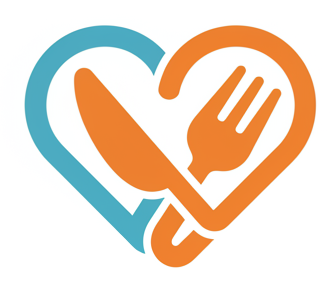Alcohol can have big effects on your health. It’s important to know how it impacts you. The effects depend on how much and how often you drink.

Looking at alcohol’s effects on health is key. We need to think about both short and long-term impacts. Alcohol can affect many parts of your body and your overall health.
Introduction to Alcohol Consumption
Drinking alcohol is part of many social cultures. But, it’s important to know the risks. By understanding alcohol’s health effects, you can make better choices and drink healthier.
Key Takeaways
- Alcohol consumption can have significant effects on overall health
- Understanding the impact of alcohol on your health is crucial for making informed decisions
- Both short-term and long-term consequences of alcohol consumption should be considered
- Healthy drinking habits can help mitigate potential risks associated with alcohol consumption
- Awareness of alcohol consumption effects can lead to better decision-making
- Developing healthier drinking habits is essential for maintaining overall well-being
Understanding Alcohol’s Effects on Your Body
It’s key to know how health risks of drinking work. Alcohol affects our body in many ways. It impacts the liver, nervous system, and other important organs.
Alcohol goes into the bloodstream after we drink it. Then, the liver tries to clean it out. But too much drinking can harm the liver and raise health risks of drinking.
Alcohol also messes with the nervous system. This can change how we act, move, and think. Knowing this helps us drink safely and avoid alcohol and health consequences.
Here are some important points about drinking alcohol:
- Drink in moderation to avoid health risks of drinking
- Know the alcohol and health consequences
- Understand how the liver and nervous system handle alcohol
Short-Term Health Consequences of Alcohol Consumption
Drinking alcohol can harm your health in many ways. Even a little can make you less careful, leading to accidents. It can also make some medicines work too well, causing more problems.
Some quick health issues from drinking include:
- Impaired cognitive function and coordination
- Increased risk of injuries and accidents
- Interactions with medications, such as blood thinners and pain relievers
- Nausea and vomiting
- Headaches and fatigue
Binge drinking is especially risky. It can cause blackouts, seizures, and even death. Knowing these dangers helps you drink safely.
Understanding the quick health risks of drinking helps you stay safe. Drink in moderation, know your limits, and get help if you have problems.
The Impact of Alcohol on Your Health: Long-Term Perspectives
Drinking too much alcohol can cause serious health effects of drinking. It can damage important organs in a way that can’t be fixed. The dangers of drinking too much are many, and it’s key to know what can happen. Alcohol abuse health risks can harm not just the person drinking but also their family.
Some serious health problems caused by drinking include:
- Liver disease and damage, which can lead to liver failure and even death
- Cardiovascular complications, such as heart disease, high blood pressure, and stroke
- Digestive system issues, including pancreatitis, gastritis, and ulcers
- Brain function changes, which can result in memory loss, cognitive impairment, and increased risk of dementia
It’s important to know these risks and take steps to avoid them. By understanding the health effects of drinking and alcohol abuse health risks, people can make better choices about drinking. This can help lower the chance of getting these serious health problems.
Mental Health and Alcohol: A Complex Relationship
Alcohol’s impact on health is complex, especially on mental health. It can have far-reaching effects, making it crucial to understand its relationship with mental well-being. Studies show that alcohol can make mental health issues like depression and anxiety worse. It can also lead to new mental health problems.
One big worry is self-medication. People might drink to deal with stress or trauma. While it might seem to help, it can actually make mental health problems worse. It’s important to spot the signs of self-medication and get help for mental health issues.
When looking at mental health and alcohol, consider these points:
- Alcohol can trigger or make mental health symptoms worse.
- Self-medication and dependence are risks.
- Alcohol’s impact on mental health is especially concerning with trauma and stress.

Understanding the link between mental health and alcohol helps people make better choices about drinking. It’s key to focus on mental health and know that alcohol’s effects can be serious. The negative impacts of alcohol on health are a big concern.
How Alcohol Affects Your Sleep Patterns
Drinking alcohol can really mess with your sleep. It can cause sleep quality disruption and other sleep issues. It’s important to know how alcohol affects your sleep.
Alcohol changes your body’s natural sleep cycle. This makes it hard to fall asleep or stay asleep.
Studies show that alcohol’s effects on sleep are wide-ranging. It doesn’t just affect sleep quality but also your overall health. Alcohol can disrupt your sleep in several ways:
- Disrupting the body’s natural sleep-wake cycle
- Affecting the quality of REM sleep
- Leading to long-term sleep problems
Understanding how alcohol impacts sleep is key. Knowing this can help you improve your sleep habits. It can also reduce the risk of long-term sleep issues.
Being smart about alcohol use can protect your health. Remember, alcohol’s effects on your health are very important. Being aware of its impact on sleep is just one part of living a healthy life.
The Social Impact of Alcohol Consumption
Drinking alcohol can affect a person’s social life and relationships deeply. The health risks of drinking are serious, especially with too much alcohol in social situations. Studies show that too much drinking can harm relationships, work performance, and increase accident risks.
Alcohol can hurt social relationships in many ways. It can lead to broken connections, fights, and poor work performance. It also raises the chance of accidents and injuries.
- Disrupted social connections and relationships
- Increased risk of conflicts and violence
- Decreased productivity and performance at work
- Increased risk of accidents and injuries
Knowing the health risks of drinking is crucial. Taking steps to drink less and be careful can help. This way, people can protect their health and the health of those around them.
Being aware of alcohol and health consequences helps make better choices about drinking. By focusing on health, people can make their social environment safer and more supportive for all.
Understanding Moderate Drinking vs. Excessive Consumption
It’s key to know the difference between drinking in moderation and too much. Alcohol’s effects on the body can be big, leading to health problems if you drink too much. Knowing what’s okay and when you’re drinking too much is important.
Being smart about alcohol means knowing the dangers of too much. The impact of alcohol on the body can cause serious health issues like liver disease and heart problems. Knowing these risks helps you drink better and stay healthy.
- Drinking frequency and amount
- Family history of alcohol-related health issues
- Personal health status and any underlying medical conditions
Being aware of these points helps you avoid health problems from drinking too much. It’s a step towards better health and well-being.
Strategies for Healthier Drinking Habits
Creating healthier drinking habits can greatly lessen the health effects of drinking and cut down on alcohol abuse health risks. It’s key to set limits and drink at a steady pace. Knowing your drinking habits and what makes you drink too much is vital. Having friends and family to support you can also help a lot.
Here are some ways to drink healthier:
- Drink in moderation, which means up to one drink a day for women and up to two for men
- Stay away from things that make you drink too much, like certain social events or feelings
- Drink water or other drinks without alcohol to stay hydrated
- Eat something before drinking to slow down how fast alcohol gets into your system
Using these tips can help you cut down on the health effects of drinking and lower your alcohol abuse health risks. It’s also important to know when you’re drinking too much and get help if you need it. With the right approach and support, you can make better choices about drinking and feel better overall.

When to Seek Professional Help
It’s important to know how alcohol affects your health. If you notice you need more to feel the same, or if you feel sick when you stop drinking, it’s time to get help. These signs can mean you’re drinking too much.
The harm from alcohol can last a long time. Getting help early can help you control your drinking. This way, you can protect your health and well-being.
- Drinking alone or in secret
- Experiencing withdrawal symptoms when not drinking
- Neglecting responsibilities due to alcohol consumption
- Continuing to drink despite physical or mental health problems
There are many ways to get help, like counseling, support groups, and medication. It’s key to find a plan that fits you. This will help you deal with the problems caused by alcohol.
Myths and Facts About Alcohol’s Health Effects
Knowing how alcohol affects your health is key to making smart choices about drinking. It’s hard to tell myths from facts, but it’s vital for better drinking habits. Many think that drinking a little won’t hurt, but studies show it might help lower heart disease risk.
But, drinking too much can harm a lot. It can damage your liver, raise cancer risks, and hurt your mental health. How alcohol affects you depends on your age, sex, and health. It’s important to know the dangers of too much drinking and drink wisely.
- Even a little alcohol can have big health impacts.
- Drinking can cause short-term and long-term problems, from bad judgment to serious diseases.
- Learning and knowing the facts help us drink better and avoid too much alcohol’s risks.
By knowing the truth about alcohol’s health effects and watching our drinking, we can choose better for our health. Remember, how alcohol affects you is different. What’s safe for one might be too much for another.
Conclusion: Making Informed Decisions About Alcohol Consumption
As we wrap up this guide, remember the importance of smart choices about drinking. The health risks of drinking and alcohol and health consequences are key to staying healthy. These points are crucial for anyone wanting to keep their health in top shape.
Knowing how alcohol affects your body and mind gives you power over your drinking. Look at how much you drink, watch for warning signs, and find ways to drink better. Always remember, drinking in moderation is best. If you need help, getting professional advice can really help.
Choosing to drink is a personal choice, but knowing the risks is important. Stay up to date, know your limits, and focus on your health and happiness. Let’s all work together to drink responsibly and support each other in making good choices.
Disclaimer: This article is for informational purposes only and does not constitute medical advice. Always consult a healthcare professional before starting a new exercise or wellness routine.
FAQ
What are the short-term health consequences of alcohol consumption?
Drinking alcohol can make you feel less sharp and increase your risk of accidents. It can also mix badly with some medicines. Drinking too much can lead to alcohol poisoning, a serious condition.
How does alcohol affect long-term health?
Drinking a lot over time can harm your liver, heart, and digestive system. It can also change how your brain works. These problems can get worse and might not be reversible.
What is the relationship between alcohol and mental health?
Alcohol can make mental health issues like depression and anxiety worse. Using alcohol to try to feel better can lead to more problems. This is especially true when dealing with stress or trauma.
How does alcohol affect sleep patterns?
Drinking alcohol can mess up your sleep. It can cut down on deep sleep and cause long-term sleep issues. Bad sleep can affect your health in many ways.
What are the social impacts of alcohol consumption?
Drinking too much can hurt your relationships and work life. It can also make you feel worse overall. The effects of alcohol on your social life can be big and lasting.
How can I distinguish between moderate and excessive alcohol use?
Drinking up to one drink a day for women and two for men is usually okay. But, if you need more to feel normal or have withdrawal, you might be drinking too much. Think about how alcohol affects your life to decide if you’re drinking too much.
What strategies can I use to develop healthier drinking habits?
To drink better, set limits and drink slowly. Stay away from things that make you want to drink more. Knowing yourself and getting support can also help you drink healthier.
When should I seek professional help for alcohol-related issues?
If you need more alcohol to feel normal or have withdrawal, you should get help. There are many ways to get better, like counseling, support groups, and medicine. There are also resources to help you find the right help.






